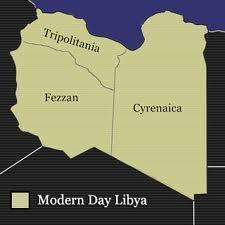Marc Herman's Blog, page 2
December 1, 2011
Why and How A Novelist Didn't Write a Kindle Single
L.A. – based novelist Edan Lepucki just published a thoughtful takedown of electronic self-publishing, at The Millions. An excerpt:
The thought of Amazon being the only place to purchase my novel shivers my timbers. I don't mind if someone else chooses to read my work electronically, just as I don't mind if Amazon is one of the places to purchase my work; I'm simply wary of Amazon monopolizing the reading landscape. Self-publishing has certainly offered an alternative path for writers, but it's naive to believe that a self-published author is "fighting the system" if that self-published book is produced and made available by a single monolithic corporation. In effect, they've rejected "The Big 6″ for "The Big 1."
She's also concerned that she may not be able to buy her own book (which her publisher sells both as a print edition and as a $5.00 ebook).
She's right to worry. I can't buy my latest story. I don't have an eReader, and my 2007 Macbook tells me it needs its OS updated to support the Kindle Reader App.
The people I wrote about don't have any idea what I said about them, either. This is a first in my career. I've always sent copies of books or articles to the people who share their stories with me. To do that will require more creativity now. My latest story is a dispatch from Libya. The characters, who are real people, read in Arabic.
So it was dismaying when my friend Mohamed ElGohary, an Egyptian journalist, informed me a few days ago that the Kindle screen does not yet support Arabic. (Some models can display PDFs in Arabic. They process the words as images, not as text, constraining usability.)
That's not just a problem of courtesy for me. It's also a business handicap. A key question implied by direct digital publishing is the fate of international copyright. Copyright used to end at the water's edge. Selling publishing rights in other languages was a key business for legacy publishers and a source of income — often considerable — for authors.
That's not the case for my Kindle Single. I can sell it to whomever can connect to Amazon.com's Single's page, and Amazon is expanding throughout the world.
It's a technical issue, but how fast Kindle supports different alphabets could influence how I distribute long-form dispatches in the future. If hardware support defines this kind of journalism's expansion more than market support does, an international reporter will be in a bind.
That bind is different for a novelist like Edan Lepucky than it is for a reporter like me. I know that the Arab Spring is an important story. I know too that Arabic speakers are one of the fastest-growing user communities on the internet, and that Arabic readers are enthusiastic customers for electronic devices. And I know, most importantly, that my story takes place in Libya. Social networking is wildly popular in the MENA ("Middle East-North Africa") region. And Arabic has one of the world's richest literary traditions. People in the Middle East will absolutely be online buying, talking about, and debating literature, and the biggest story of the year happened in their backyard (and in Libya, the front yard). I suspect I could find readers in the MENA region to justify the $1000 or so it would cost me to translate my story into Arabic, that part of the world's lingua franca.
The non-business issue is tied to the business issue. I can't sell to the people whose lives I'm writing about; for a journalist, this brings up questions of what kind of conversation I'm hoping to provoke. I'm not, in theory, an anthropologist, doing my fieldwork and then carrying that back to another land to discuss with my own people. I'm seeking to occupy a lacuna in an emerging global narrative. The Shores of Tripoli is the result of a baton pass, from the journalists who wrote other, previous stories about the Arab Spring. Then I get my turn. Then I pass to, say, Mohamed ElGohari. And then he passes to the next, who may well be Japanese or Spanish. That is how we understand current events today, I suspect. In aggregate.
But the hardware has to support that narrative chain, or it breaks, and can be pretty taxing to repair. And the Arab world is a huge link this year.
So while I'm still confident I did the right thing bringing The Shores of Tripoli to Amazon and not a traditional magazine, Lepucky's comments were provocative. Paper reliably accepts ink in whatever shapes one prefers.








November 28, 2011
Why and How I Wrote a Kindle Single
THE WAGES PAID to foreign stringers – the occasional contributors newspapers rely on to cover vast swaths of the planet – even shock reporters. Between $200 and $300 per dispatch is common. $500 is desirable. That fee represents work taking about a day, sometimes two, to complete in a dignified manner. You identify what's most important or interesting in a situation, talk to people about it, confirm what they tell you, perhaps travel to an event and record the details, write up the story, find a place to send it back to the publisher, and wait an hour. Then you go through one or more rounds of questions and edits. A twelve hour day is a minimum, and longer ones very common. That process doesn't really change, whether you are covering a distillers' convention or the Libyan Revolution.
It's fair money if you're sending a story every day. But you usually aren't. And you pay your own expenses. For that reason, twenty years ago, I went into magazines instead. Magazines calculate fees differently from newspapers and wires. Magazines pay by the word, and they typically assign a lot of words. $.50-$3.00/wd is common for magazines. If you work a month on a 3500 word story, you earn $1750 on the low end, and $10,000 on the higher end. One starts to see one's way to a middle class life at those rates. Magazines are also linked closely to the book industry. In 1997, a story I wrote about a gold rush in Latin America earned me about $6,000. A few years later, I expanded the story and got a book deal worth $50,000. That sounds good, and it is. But it takes awhile to produce these stories, and one faces travel expenses and taxes and so forth. And selling a big story every month, at a good rate, requires a steady stream of ideas and information — a reason, beside public spiritedness, that foreign affairs reporters often flock to disasters and conflicts. In the end, working steadily I earned about as much as a public school teacher, with a similar trade-off of costs and benefits. You have to hustle, but you do fine.
Or did, until the bottom fell out of the market a few years ago. The financial crisis has famously hit publishing very hard, and the appetite for international news has never been a major source of income for the industry anyway. Most of the places I used to sell my work stayed in business, but tightened their budgets considerably.
When the Libyan conflict began, I had just written two stories for the print edition of The Atlantic Monthly — about vacations. An editor there asked me what I was doing next, and I said I was going to Tunisia by ferry. The tense I'd used — the future — was a salesman's elision from the conditional tense. What I meant was "If you hire me to write about the ferry that floats from France to Tunisia, I am going to go, and from there I will likely head toward Libya. If you don't, then I won't." She did.
Here is where the story gets more interesting. The Atlantic recently announced that its income from digital operation — its website — has surpassed what it earns from the traditional magazine it has published to great acclaim for more than a century. But the digital side still pays very little money to journalists who work for it, while the print side pays $2/wd. So what I did was take the money I earned from the story about the ferry, and proposed to spend it writing about Libya for the digital side. They agreed. I did this because I needed imprimatur to get people to grant me interviews, grant me access as a
member of the press, and generally take me seriously. With that imprimatur, I could report, and if I could report, I could write something later that would succeed as both journalism, and as business.
 I mentioned the market has narrowed. If your goal is to write several thousand words encompassing a complex event, it's even narrower. You must sell the story to one of the very few publications that still has the budget to publish such work, and you have to get past the thousands of other perfectly qualified people with equally significant stories to tell.
I mentioned the market has narrowed. If your goal is to write several thousand words encompassing a complex event, it's even narrower. You must sell the story to one of the very few publications that still has the budget to publish such work, and you have to get past the thousands of other perfectly qualified people with equally significant stories to tell.
You could also try to sell a traditional book. But to do that requires writing a detailed proposal, toward a final product that will not appear for the better part of a year, or, often, even two.
The Kindle Single was my agent's idea. Amazon provided an experienced editor who offered notes and a copy editor who checked the grammar and usage, and hired a designer to make the cover. This proved, in my case, a workable middle option. It was a way to tell the story in a way that reminded me of magazine journalism, but avoided the intense competition for attention from the remaining handful of editors who buy this sort of work in the traditional press. And it providing the possibility of ultimately funding the work — we sell it, very inexpensively, for consumption on Kindle readers, and smartphones, tablets and PCs with a Kindle app.
The final story at the end of this cobbled-together process was 35 pages long and called The Shores of Tripoli. As journalism, it was its own reward: the story exists. But in the end, one writes to be read, and to keep producing work for public consumption, one must figure out a reliable way to pay for it. Amazon priced The Shores of Tripoli at two bucks. The other book I have on Amazon, the one I got $50k for years ago, started out at $27.50 for the hardback, and now it's still $9.99 for the download. So there's a basis for comparison. We'll see.
The Shores of Tripoli is available for $1.99 at Kindle Singles.








November 26, 2011
Hello
Welcome.

Me, slightly too pleased with myself
The name of this blog, $3.86 comes from the lowest balance I have had in the checking account I use for work expenses.
I'm an international reporter. Writing long-form items about faraway events is a fascinating experience. The business model for this kind of work, however, has always been a little suspect.
I am hoping to use this space to talk about my job. I'm interested in finding ways to continue doing these kinds of stories for as long as I can, and for as long as they prove useful.











